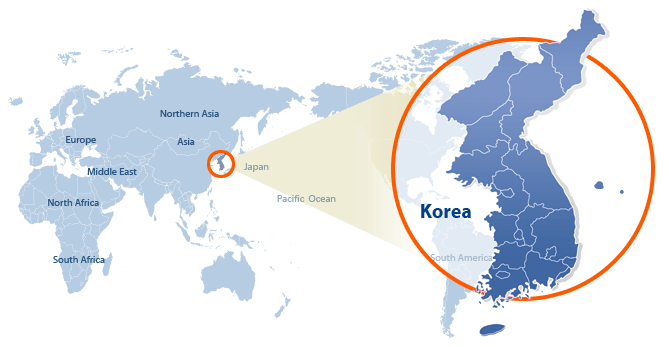| |
 |
|
|
 |
 › General Information › About Korea › General Information › About Korea |
|
 |
|
Korea, traditionally known as the Land of the Morning Calm, is today a modern, bustling hub of East Asia. It is a peninsula jutting off of China, and Japan is only two hours away. Despite this close physical proximity to the neighboring countries, Korea has a distinctive culture of its own, which has developed during its 5,000 years of history. Visitors can expect to meet a lively population with its own language, writing system, architecture, cuisine, and many other manifestations of a unique cultural heritage. |
 |
Capital City- Seoul |
 |
|
|
 |
Seoul is the capital of Korea with over 600 years of history. It is the heart of Korea’s culture and education as well as politics and economics. Seoul is home to many old historic sites like Gyeongbokgung and Changdeokgung Palaces, and places of traditional culture like Bukchon Hanok Village, Insa-dong, and Namdaemun Market. The shopping and entertainment districts of Myeongdong and Apgujeong, and Asia's largest underground shopping center COEX Mall also draw a large number of tourists every year.
The Hangang River, which runs through the center of the city, is also a distinctive landscape of Seoul that offers amyriad of resting areas for citizens.
|
 |
Climate |
 |
|
|
Korea's climate is regarded as a continental climate from a temperate standpoint and a monsoon climate from a precipitation standpoint. The climate of Korea is characterized by four distinct seasons. Spring and autumn are rather short, summer is hot and humid, and winter is cold and dry with abundant snowfall. Temperatures differ widely from region to region within Korea, with the average being between 6  (43  ) and 16  (61  ). The average temperature in August, the hottest period of the year, ranges from 19  (66  ) to 27  (81  ). |
| Monthly Temperature |
| Month |
Jan. |
Feb. |
Mar. |
Apr. |
May. |
Jun. |
Jul. |
Aug. |
Sep. |
Oct. |
Nov. |
Dec. |
| Temperature |
-4 |
0 |
5 |
12 |
17 |
22 |
26 |
28 |
17 |
10 |
7.8 |
4 |
|
 |
|
 |
|
| |
|